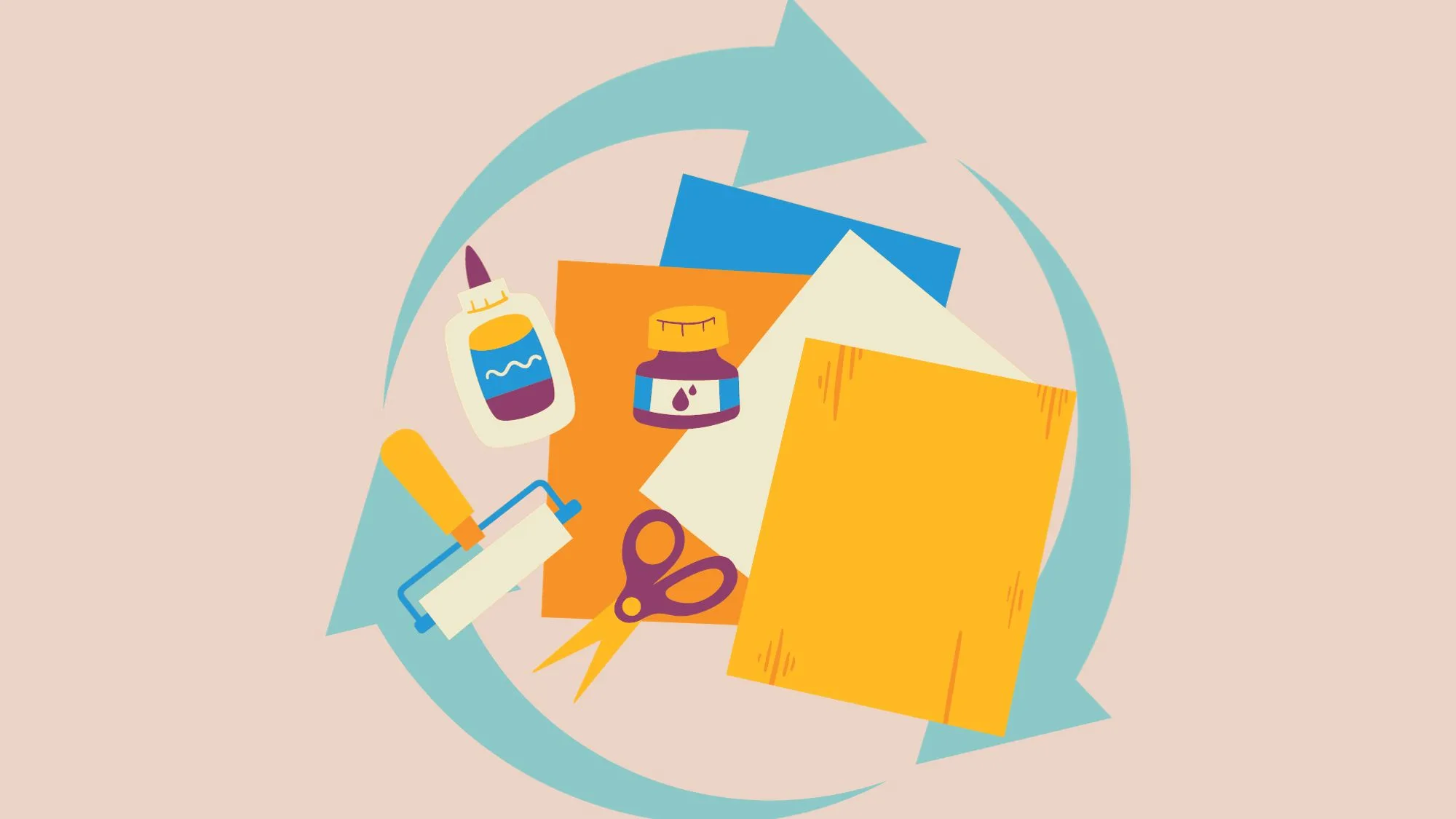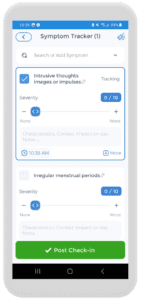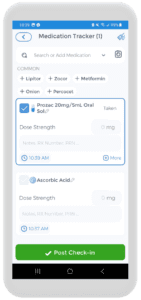
Obsessive-Compulsive Disorder, commonly known as OCD, is a mental health condition that affects millions of people worldwide. It is characterized by recurring, unwanted thoughts, images, or impulses that trigger intense feelings of anxiety and often lead to repetitive behaviors or mental rituals aimed at reducing the anxiety. While it may seem like a harmless quirk, obsessive compulsive disorder can have serious consequences on one’s emotional, social, and physical well-being. Thankfully, there are treatments and self-help strategies that can help you break OCD cycle and regain control of your life. In this article, we will explore everything you need to know about obsessive compulsive disorder, its impact on daily life, treatment options, and self-help strategies, as well as tips for supporting a loved one with obsessive compulsive disorder and journeying towards recovery.[1][2][3][4]
Understanding Obsessive-Compulsive Disorder
Obsessive-Compulsive Disorder, or OCD, is a type of anxiety disorder that affects millions of people worldwide. It is characterized by unwanted thoughts, images, or urges that are intrusive and often anxiety-provoking. These thoughts can be distressing and cause significant impairment in daily functioning.
What is OCD?

People with obsessive compulsive disorder may feel ashamed of their symptoms and may go to great lengths to hide them from others. This can lead to social isolation and can make it difficult for them to seek help or accept any support.
Common Symptoms and Types of OCD
The symptoms of obsessive compulsive disorder vary widely from individual to individual, but common obsessions and compulsions include excessive cleaning, checking, counting, ordering, hoarding, and repeating words or actions. These behaviors can take up a significant amount of time and can interfere with daily functioning.
obsessive compulsive disorder can also manifest as intrusive thoughts related to harm, sexual, or taboo themes. These thoughts can be distressing and can cause significant anxiety and shame. People with this form of OCD may engage in mental rituals, such as counting or praying, to try to neutralize these thoughts.
Some common subtypes of OCD include:
- Contamination OCD: This subtype involves excessive fear of germs or contamination. People with this subtype may engage in excessive cleaning or avoidance of certain objects or situations.
- Symmetry and Ordering OCD: This subtype involves a need for symmetry, order, and exactness. People with this subtype may spend hours arranging objects or may feel distressed when things are not arranged in a particular way.
- Hoarding OCD: This subtype involves difficulty discarding objects, even if they are of no value. People with this subtype may have cluttered living spaces and may experience significant distress when faced with the prospect of discarding items.
- Harming OCD: This subtype involves intrusive thoughts related to harming oneself or others. People with this subtype may engage in mental rituals, such as counting or praying, to try to neutralize these thoughts.
Causes and Risk Factors
The exact cause of obsessive compulsive disorder is unknown, but research suggests that it is likely caused by a combination of genetic, environmental, and neurobiological factors. People with a family history of obsessive compulsive disorder or other anxiety disorders, as well as those who have experienced trauma or abuse, may be at a higher risk of developing obsessive compulsive disorder.
Neuroimaging studies have shown that people with obsessive compulsive disorder have differences in brain structure and function compared to people without the disorder. These differences may contribute to the development and maintenance of OCD symptoms.
Although OCD is a chronic condition, it is treatable. Cognitive-behavioral therapy (CBT) and medication, such as selective serotonin reuptake inhibitors (SSRIs), have been shown to be effective in reducing OCD symptoms. It is important for people with OCD to seek treatment from a qualified mental health professional.[5]
The Impact of OCD on Daily Life
Obsessive-Compulsive Disorder (OCD) is a mental disorder characterized by obsessive compulsive symptoms, which are intrusive and repetitive thoughts (obsessions) and behaviors (compulsions) that individuals feel compelled to accept and perform. OCD can have a significant impact on one person’s daily life, affecting their emotional and mental well-being, social and relationship functioning, and physical health.
Emotional and Mental Effects
Individuals with OCD often experience intense emotional distress, including feelings of shame, guilt, anxiety, and depression. They may feel ashamed of their obsessions, fears and compulsions, leading to a sense of isolation and fear of judgment from others. Anxiety is also a common symptom of OCD, as individuals feel a sense of urgency to perform their compulsions to alleviate their anxiety. However, this relief is often temporary and can lead to a cycle of compulsive behavior that interferes with daily activities, such as work, school, or socializing. This can cause significant distress and impact one’s overall quality of life.
Social and Relationship Challenges
OCD can also affect one’s social and relationship functioning. Individuals with OCD may feel
Physical Health Consequences
OCD can also have physical consequences. Individuals with OCD may experience fatigue, insomnia, headaches, and digestive issues as a result of their condition. Compulsive behaviors, such as excessive hand-washing, can also lead to skin irritation and damage. Additionally, individuals with OCD may be at increased risk for other health conditions, such as eating disorders, due to the nature of related disorders and their obsessive thoughts and compulsive behaviors.
In summary, OCD can have a significant impact on one’s daily life, affecting emotional and mental well-being, social and relationship functioning, and physical health. It is important for individuals with OCD to seek appropriate treatment, such as therapy or medication, to manage their symptoms and improve their overall quality of life.[6][7][8]
How to Effectively Treat OCD Symptoms
Obsessive-compulsive disorder (OCD) is a mental health condition that affects millions of people worldwide. It is characterized by intrusive, unwanted thoughts (obsessions) and repetitive behaviors or mental acts (compulsions) that individuals feel compelled to perform in order to alleviate anxiety or prevent harm. Fortunately, there are several effective options available for wanting to treat OCD.
Cognitive-Behavior Therapy (CBT)
Cognitive-behavior therapy, or CBT, is a type of psychotherapy that has been shown to be effective to treat OCD. This type of therapy involves identifying and challenging intrusive thoughts and beliefs, as well as learning and practicing healthier coping mechanisms. CBT can help individuals understand the underlying causes of their OCD symptoms and develop strategies to manage them.
During CBT, individuals work with a therapist to identify and challenge their negative thought patterns, obsessive fears, and beliefs. This may involve learning how to recognize and reframe cognitive distortions, such as black-and-white thinking or catastrophizing. Individuals may also learn relaxation techniques, such as deep breathing or progressive muscle relaxation, to help manage anxiety and stress.
Exposure and Response Prevention (ERP)
Exposure and response prevention, or ERP, is a type of CBT that focuses on gradually exposing oneself to feared situations or stimuli while refraining from engaging in compulsive behaviors. Over time, this can help reduce the urge to engage in compulsions and increase one’s tolerance for anxiety. ERP is often considered the gold standard to treat OCD.
During ERP, individuals work with a therapist to create a hierarchy of feared situations or stimuli, starting with the least anxiety-provoking and working up to the most anxiety-provoking. Individuals then gradually expose themselves to these situations or stimuli while refraining from engaging in compulsive behaviors. This can be challenging and anxiety-provoking, but over time it can help reduce the severity of OCD symptoms.
Medication Options

SSRIs, such as fluoxetine (Prozac) and sertraline (Zoloft), are often the first-line medication treatment for OCD. These medications work by increasing the levels of serotonin in the brain, which can help regulate mood and reduce anxiety. Tricyclic antidepressants, such as clomipramine (Anafranil), may also be effective in reducing OCD symptoms, but they have more side effects and are typically used as a second-line treatment.
Alternative and Complementary Therapies
Some alternative and complementary therapies, such as meditation, yoga, deep brain stimulation, or acupuncture, may also be helpful in reducing stress and anxiety and improving overall well-being. However, these should be used in conjunction with evidence-based treatments and should not replace therapy or medication.
For example, a form of mindfulness meditation has been shown to be effective in reducing anxiety and improving mood in individuals with OCD. Yoga may also help reduce stress and improve flexibility and strength. Acupuncture may be helpful in reducing anxiety and promoting relaxation, although more research is needed to determine its effectiveness.
It is important to work with a therapist or a qualified mental health professional to determine the best treatment plan for OCD. With the right treatment, individuals with OCD can learn to manage their symptoms and improve their quality of life.[9][10][11]
Self-Help Strategies to Break OCD Cycle
Developing a Healthy Routine
Developing a healthy routine is an essential step in managing OCD. A routine that includes regular exercise, a balanced diet, and good sleep hygiene can help reduce stress and improve overall well-being. Exercise is known to be an effective stress-reliever, and it can also help to increase the production of endorphins, which are the body’s natural mood boosters. A balanced diet can help to provide the necessary nutrients that the body needs to function correctly, which can help to reduce anxiety and promote relaxation. Good sleep hygiene is also essential for managing OCD symptoms. A good night’s sleep can help to reduce stress and anxiety, which can help to reduce the frequency and intensity of obsessive thoughts and compulsive behaviors.
Mindfulness and Relaxation Techniques
Practicing mindfulness and relaxation techniques is another effective way to manage OCD symptoms. Mindfulness is the practice of being present and fully engaged in the current moment. It can help to reduce anxiety and increase one’s tolerance for discomfort. Relaxation techniques such as deep breathing, meditation, or yoga can also help to reduce anxiety and promote relaxation. These techniques can be practiced anywhere and anytime, making them a convenient and effective way to manage OCD symptoms.
Challenging Obsessive Thoughts
Challenging obsessive thoughts is an essential step in managing OCD. It involves questioning the validity of these thoughts and replacing them with more rational and realistic thoughts. This can help to reduce the urge to engage in compulsive behaviors. One effective way to challenge obsessive thoughts is to ask yourself questions such as “Is this obsessive thought really based on fact or emotion?” or “Is this thought helpful or harmful?” By doing so, you can gain a better understanding of your thoughts and learn to challenge them more effectively.
Building a Support Network
Building a support network is an essential part of managing OCD. Having a network of family, friends, or peers who understand and support your struggles with OCD can provide a valuable source of encouragement and motivation. Joining a support group or seeking professional help can also be helpful in managing OCD. Support groups can provide a safe and supportive environment where you can share your experiences and learn from others who are going through similar struggles. Professional help, such as therapy or medication, can also be effective in managing OCD symptoms.[12][13][14][15][16][17]
Tips for Supporting a Loved One with OCD
Educate Yourself About OCD
Learning about OCD and its symptoms can help you understand what your loved one is going through and provide valuable insights into how to best support them.
It is important to understand that OCD is a mental disorder characterized by uncontrollable, recurring thoughts and behaviors that interfere with daily life. These thoughts and behaviors are often irrational and can cause significant distress and anxiety. By educating yourself about OCD, you can better understand the challenges your loved one is facing and how to help them cope.
You can start by researching online or reading books about OCD. You can also talk to mental health professionals or attend support groups to learn more about the condition and how to support your loved one.
Encourage Treatment and Self-Help Strategies to Break OCD Cycle
Encouraging your loved one to seek professional help and supporting them in their journey towards recovery can be a powerful way to show your support and willingness to accept help.
There are various treatment options available for OCD, including therapy and medication. Encourage your loved one to seek professional help and offer to accompany them to appointments if needed. You can also help them find self-help strategies, such as mindfulness and relaxation techniques, that can help them manage and treat their symptoms.
It is important to remember that recovery from OCD is possible, but it may take time and effort. Encouraging your loved one to take small steps towards recovery and celebrating their progress can be a great way to show your support.
Practice Patience and Empathy
Remember that OCD is a complex and challenging condition, and recovery may take time. Practicing patience and empathy can help your loved one feel understood and supported.
It is important to listen to and talk to your loved one without judgment and validate their feelings. Avoid minimizing their experiences or telling them to “just get over it.” Instead, offer words of encouragement and support. Let them know that you are there for them and that you believe in their ability to overcome their challenges.
Remember that recovery is a journey, and there may be setbacks along the way. By practicing patience and empathy, you can help your loved one stay motivated and focused on their goals.
Establish Boundaries and Maintain Your Own Well-being
While it is important to support your anxious loved one, it is also important to establish boundaries and maintain your own well-being. Remember that you cannot fix or change their OCD, but you can offer support and understanding.
It is important to set boundaries to protect your own mental health and well-being. This may include setting limits on the amount of time you spend talking about OCD or taking breaks when you need them. You can also seek reassurance and support from others, such as friends or a therapist, to help you cope with the challenges of supporting a loved one with OCD.
Remember that taking care of yourself is not selfish, but rather a necessary part of being a supportive caregiver. By maintaining your own well-being, you can be better equipped to support your loved one in their journey towards recovery.[18][19][20]
Break OCD Cycle: A Journey Towards Recovery
Obsessive-compulsive disorder (OCD) is a mental health condition that affects millions of people worldwide. It is a disorder that causes unwanted and intrusive thoughts, images, or urges (obsessions) and repetitive behaviors or mental acts (compulsions) to alleviate the anxiety caused by those obsessions. OCD can be debilitating and interfere with daily life, making it difficult to maintain relationships, work, or engage in activities that bring joy and fulfillment.
However, it is possible to overcome OCD and regain control of your life. Recovery from OCD is a journey that requires commitment, patience, and effort. It involves learning new coping skills, challenging distorted thoughts, and gradually facing feared situations or objects.
Setting Realistic Goals
Setting realistic and achievable goals is an essential part of the recovery process. It can help provide motivation and direction in the journey towards overcoming OCD. However, it is crucial to set goals that are specific, measurable, attainable, relevant, and time-bound (SMART). For instance, a SMART goal for someone with contamination OCD may be to touch a doorknob without washing their hands for 30 seconds within the next two weeks.
It is also important to break down larger goals into smaller, manageable steps. This can help prevent feeling overwhelmed or discouraged by the enormity of the task. Celebrating progress towards each step can also help boost motivation and self-confidence.
Celebrating Progress and Successes
Recognizing even small successes and progress towards recovery is vital. It can help boost self-esteem and motivation, making it easier to continue working towards recovery. Celebrations can be as simple as acknowledging and congratulating oneself for facing a feared situation or completing a step towards a larger goal.
It is also important to acknowledge the effort and hard work that goes into recovery. Recovery from OCD is not easy, and it takes courage and persistence to face fears and challenge distorted thoughts. Therefore, it is essential to practice self-compassion and acknowledge the progress made, no matter how small.
Coping with Setbacks and Relapses
Setbacks and relapses are a normal part of the recovery process and do not mean failure. Instead, view them as opportunities to learn and grow from and continue moving forward. It is essential to identify the triggers or factors that led to the setback and develop strategies to prevent or manage them in the future.
It is also crucial to seek support from a therapist or support group during setbacks or relapses. They can provide guidance, reassurance, and help develop new coping strategies.
Using the CareClinic App to Help Break OCD Cycle
People with OCD have a difficult time dealing with OCD and related disorders. However, the Careclinic App can help OCD sufferers with their effort to overcome OCD. The app can act as your personal health journal, where you can track your symptoms. Whether you experience compulsion, doubt, upsetting thoughts, specific behaviors, or are not getting enough sleep, you can write down these symptoms as they occur to analyze them and see how you can improve. This information will also be handy next time you visit your doctor!
It is important to remember that recovery from OCD is a journey, and it takes time and effort. Be patient, be kind to yourself, and don’t give up on the road to recovery. With the right OCD treatment, self-help strategies, and support, it is possible to overcome OCD and live a fulfilling and meaningful life.
Sources:
- https://www.nimh.nih.gov/health/topics/obsessive-compulsive-disorder-ocd
- https://iocdf.org/about-ocd/
- https://www.mayoclinic.org/diseases-conditions/obsessive-compulsive-disorder/symptoms-causes/syc-20354432
References
- “Obsessive-Compulsive Disorder (OCD) – National Institute of Mental Health (NIMH)”. https://www.nimh.nih.gov/health/statistics/obsessive-compulsive-disorder-ocd
- “OCD Statistics and Prevalence Rates”. https://www.thetreetop.com/statistics/ocd-statistics
- “OCD Facts & Statistics: How Common Is OCD? – ASH US”. https://www.ash-us.org/latest-facts-about-ocd-prevalence-causes-and-treatments/
- “What is Obsessive-Compulsive Disorder (OCD)? Things to Know – Relief Mental Health”. https://reliefmh.com/blog/what-is-obsessive-compulsive-disorder-ocd/
- “What Does It Mean to Have OCD? These Are 5 Common Symptoms”. https://time.com/4955582/what-is-ocd-anxiety/
- “Quality of life among patients with obsessive compulsive disorder: Impact of stigma, severity of illness, insight, and beliefs – PMC”. https://pmc.ncbi.nlm.nih.gov/articles/PMC10236666/
- “The Impact of OCD | OCD-UK”. https://www.ocduk.org/ocd/impact-of-ocd/
- “The Physical Impacts of OCD”. https://www.treatmyocd.com/blog/the-physical-impacts-of-ocd
- “Efficacy of cognitive-behavioral therapy for obsessive-compulsive disorder – PubMed”. https://pubmed.ncbi.nlm.nih.gov/25937054/
- “The effect of exposure and response prevention therapy on obsessive-compulsive disorder: A systematic review and meta-analysis – PubMed”. https://pubmed.ncbi.nlm.nih.gov/36179591/
- “The effectiveness of exposure and response prevention combined with pharmacotherapy for obsessive-compulsive disorder: A systematic review and meta-analysis – PubMed”. https://pubmed.ncbi.nlm.nih.gov/36186855/
- “How to Manage OCD: 6 Methods and Resources | Psych Central”. https://psychcentral.com/ocd/steps-to-manage-obsessive-compulsive-disorder
- “Self-care for OCD: 7 effective strategies to try today”. https://www.treatmyocd.com/blog/self-care-for-ocd
- “Managing OCD Symptoms: 5 Coping Strategies to Try at Home: Allied Psychiatry & Mental Health: Psychiatrists”. https://www.alliedpsychiatry.com/blog/managing-ocd-symptoms-5-coping-strategies-to-try-at-home
- “OCD Coping Skills: Practical Techniques for Managing Obsessive-Compulsive Disorder”. https://www.ourmental.health/ocd/effective-ocd-coping-skills-for-managing-symptoms
- “OCD: tips for self-management – Webb Therapy”. https://webbtherapy.org/ocd-tips-for-self-management/
- “Coping with Obsessive-Compulsive Disorder (OCD)”. https://lifemedicallab.com/health/obsessive-compulsive-disorder-ocd/
- “International OCD Foundation | Families: “What Can I Do to Help?””. https://iocdf.org/expert-opinions/expert-opinion-families-what-you-can-do-to-help/
- “International OCD Foundation | Information for Loved Ones”. https://iocdf.org/perinatal-ocd/information-for-loved-ones/
- “Mental health problems | Helping someone who has OCD | Mind – Mind”. https://www.mind.org.uk/information-support/types-of-mental-health-problems/obsessive-compulsive-disorder-ocd/for-friends-and-family/


